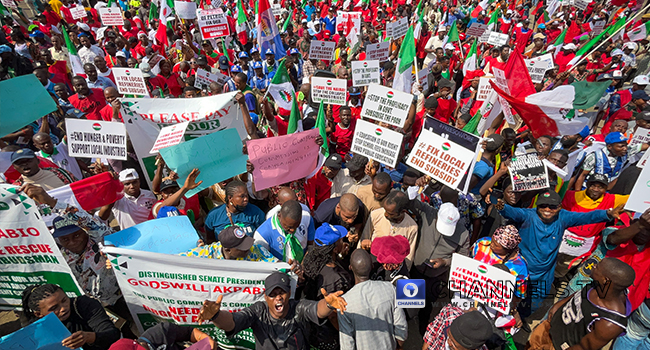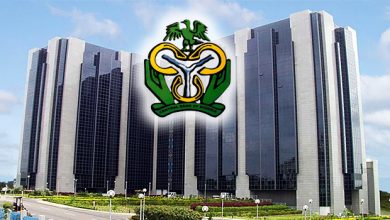
Nigerian workers on Wednesday joined their counterparts in other parts of the world to mark the 2024 International Labour Day, also known as May Day or Workers’ Day.
The May Day, an annual ritual celebrated on May 1st of every year, honours the contributions and feats of workers worldwide as well as the vital roles of workers in building resilient societies and productive economies.
This year’s Workers’ Day is the first under President Bola Tinubu who was sworn in as the leader of Africa’s most populous nation on May 29, 2023.
Already, the Federal Government declared Wednesday, May 1st, 2024 as a public holiday to mark this year’s Workers’ Day event in Nigeria.
In a statement, Nigeria’s Minister of Interior Olubunmi Tunji-Ojo said, “In alignment with this year’s theme, which focuses on ensuring safety and health at work in a changing climate, I wish to state that the Federal Government remains steadfast in its resolve to prioritise the safety and well-being of all citizens,” the minister said.
“Let me reaffirm Mr. President’s commitment to providing a conducive environment for work, where every worker can thrive and contribute meaningfully to national development.”
President Tinubu introduced some sweeping reforms including petrol subsidy removal and unification of the foreign exchange windows when he took over last May, two decisions that have been flayed by labour groups, the Nigerian Labour Congress (NUC) and the Trade Union Congress (TUC).
The removal of petrol subsidy saw the price per litre of the premium commodity jumping from around N184 to about N600. The move aimed at the deregulation of the oil sector has inflicted untold hardship on Nigerians with the prices of basic commodities going through the roof.
High-cost-of-living protests subsequently broke out across the country, with labour unions demanding new minimum wage for workers to cope with the inflationary pressure. The government has continued to placate citizens with the introduction of palliatives — as interim interventions — and encouraging them to endure the pain of the moment.
Fuel Queues
Nigerians mark this year’s May Day amid spiralling, and unending snake-like queues at filling stations as scarcity of Premium Motor Spirit (PMS) also known as petrol worsens across the Federation.
Although there have been assurances by the major oil supplier in the country, the Nigerian National Petroleum Company (NNPC) Limited to alleviate this issue, however, the queues have persisted for over one week.
The fresh fuel scarcity has grounded many economic activities in states across the Federation as Nigerians queue up at filling stations nationwide.
While some motorists were lucky to get fuel at some retail outlets for between N700 and N,1200 per litre after hours of sweat and contest, others weren’t so lucky as many retail outlets were shut, with their excuse being supply challenge.
The shortage of the premium product saw black marketers selling petrol for as high as N2,000 per litre in states.
Curved queues at filling stations in Lagos, Abuja, Port Harcourt, Kaduna, Sokoto, Kano, Benue, Sokoto, and other places have worsened the traffic situation in the states as the long queues spilt on major roads, hindering vehicular movement just as thousands of people were stranded at bus stops with transport fares doubling the previous amounts.
Soaring Food Inflation
Prices of food and basic commodities have comtinued to increase in the last few months weeks, as Nigerians continue ro battle one of the country’s toughest economic crises.
The National Bureau of Statistics (NBS)’s Consumer Price Index (CPI) report showed that the food inflation rate in March 2024 stood at 3.62%, showing a decline of 0.17% from February 2024, when it was 3.79%.
Despite the drop recorded by the NBS, many Nigerians have lamented that the reduction has not reflected in the cost of basic food items like garri, millet, yam, bread coupled with energy and housing costs.
Though the naira has appreciated against the dollar in recent weeks from about N1,900/$ to about N1,400/$1 now, inflation rate stood at 33.20% for March 2024 and interest rate at 24.75%.
Demand For Fresh Minimum Wage
The NLC and the TUC have at various times called on the administration of President Bola Tinubu to hasten the upward review of wage awards. Of late, the Organised Labour demanded N615,000 as the new minimum wage for workers to cope with the many economic realities and high cost of living in Nigeria.
Channelsnews







